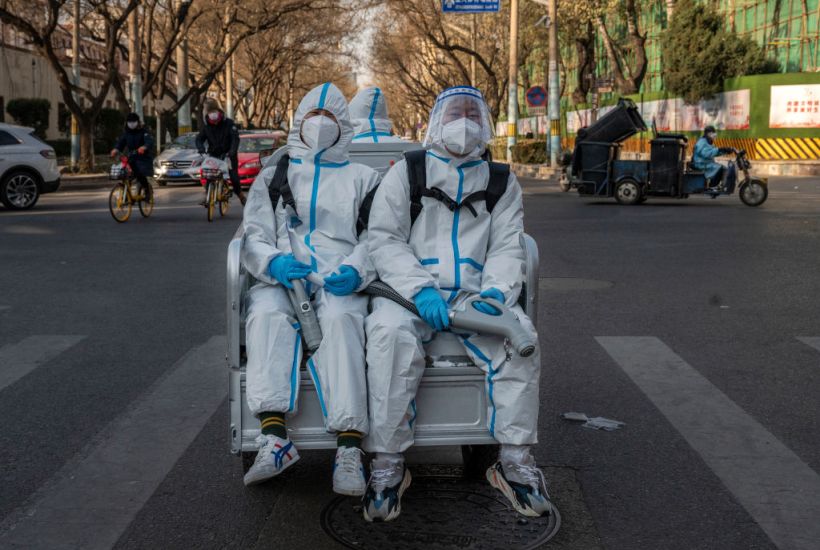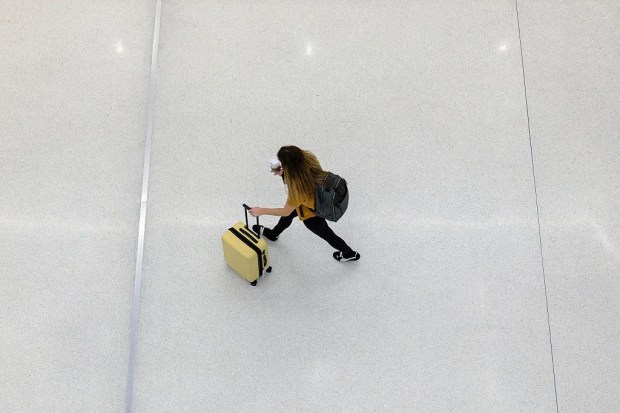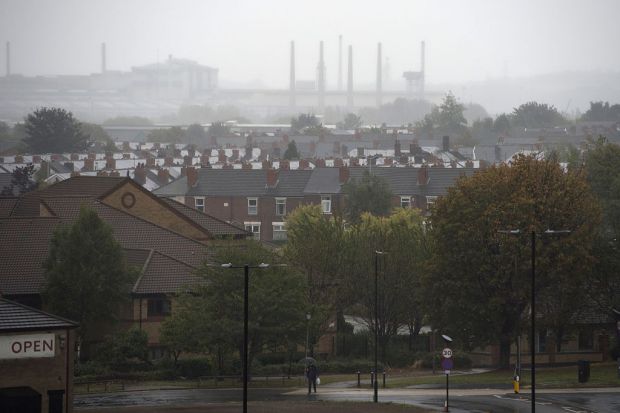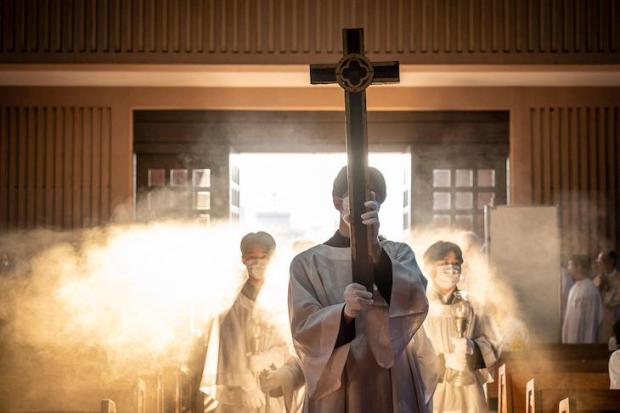China’s scrapping of strict Covid controls represents not so much a shift in gear, as a screeching hand-break turn. It is abrupt and haphazard and comes at a particularly risky time. Hundreds of millions of people will soon be on the move for Chinese New Year, which is next month, and the spread of the virus, already fast, will accelerate rapidly. The transition to living with Covid has not been easy for any country but will be particularly difficult for China – and dangerous for the communist party.
After almost three years of instilling fear – with brutal lockdowns, mass testing, sweeping quarantine and claustrophobic surveillance – the virus is suddenly being portrayed as quite benign
Only last month Xi Jinping was being portrayed as the commander in chief of a ‘people’s war’ against the virus. There was to be no turning back until it was defeated. In his address to the communist party congress Xi did not even note the enormous economic costs, the social toll and the mental stress he was imposing on China – and those brave enough to point them out were quickly silenced.
Now the very term ‘zero Covid’, used as a demonstration of party virility and a measure of superiority over bungling western democracies, has been eradicated from party propaganda. After almost three years of instilling fear – three years of at times brutal lockdowns, mass testing, sweeping quarantine and claustrophobic surveillance – the virus is suddenly being portrayed as quite benign. ‘Everyone should treat it with a normal heart – there is no need to be nervous or even fearful,’ declared Wang Guiqiang, director of the infectious diseases department at Peking University First Hospital.
In a review this week of China’s three-year fight against Covid, Xinhua, the state news agency, not only avoided any mention of contentious lockdowns, such as the two-month long shutdown of Shanghai earlier this year, but also made no mention of zero Covid – as if the policy had never existed. It was a rewriting of history, remarkable even by communist party standards. Thanks to party leadership, China had ‘survived the most difficult moment’, it insisted. Hysteric alarmism was replaced by what seems a remarkable complacency, given the challenges China still faces.
When China’s National Health Commission said this week that it was dropping many of its quarantine and mass testing measures, and that it would reduce the use of lockdowns, it presented the change as a logical response to the changing nature of the threat. But the party does not do logical. Its principal concerns will have been the mounting damage to the economy and the wave of unrest that has swept China.
It has been reported that Xi was swayed by a letter sent by Terry Gou, the head of Foxconn, which assembles most of the world’s iPhones for Apple. Its vast factory complex in Zhengzhou was the scene last month of large-scale rioting. Gou warned Xi that strict Covid controls threatened China’s central position in global supply chains. That may well have had some influence, but more likely the trigger for easing restrictions was the often-violent protests against zero Covid that swept across China. They shook the party leadership because they were so geographically widespread and involved a broad range of social groups from migrant and factory workers to students and the urban elite. It was not so easy to blame the unrest on the usual foreign ‘dark hand’ or other ‘bad elements’ – it was an expression of popular anger and frustration, and it targeted Xi and the party.
The party does not do admissions of failure, although that is what its easing of controls amounts to. The country is ill-prepared for the sudden switch away from Xi’s zero-Covid dogmatism. A vast bureaucracy and industry has been built to impose Xi’s will and to fight his fight – as represented by the massed ranks of white hazmat-suited enforcers. But they have not put in place the basic tools needed to live with the virus. Only two thirds of those aged 80 and over, the most vulnerable to serious illness or death, have received the initial course of vaccination, usually two shots, and only two-fifths of this age group have had a booster. Chinese vaccines are less effective than their western counterparts, especially against the latest Omicron variants, and Xi has stubbornly refused to allow the import of foreign jabs. There is also little natural immunity, since most people have until now been shielded from the virus. According to government statistics, China has 3.6 intensive care beds per 100,000 people, compared to 29.4 in the United States and a little over seven in the UK.
The healthcare system could be quickly overwhelmed, and modelling of the likely impact does not make for comfortable reading for healthcare workers – or the party. Up to a million people are at risk of dying in a ‘winter wave’ of Covid, according to projections reported by the Financial Times. Figures from Wigram Capital Advisors, which provided modelling to governments during the pandemic, suggest the number of deaths could reach 20,000 a day by mid-March, with the demand for critical care beds peaking at ten times capacity.
Chinese New Year falls on 22 January – the year of the Rabbit. In any usual year the annual holiday sees the world’s largest migration of people, with perhaps 400 million on the move. This time could be even busier with considerable pent-up demand for travel and a hunger to see loved ones after years of restrictions. Not only does it stand to be a ‘super-spreader’ event, but inadequately prepared rural areas could be overwhelmed by the virus.
After their initial euphoria, financial markets have become much more cautious. The economy is unlikely to quickly bounce back. Few people are ruling out an abrupt reversal by the party, imposing travel restrictions or even more severe lockdowns if there is an explosion in the number of cases. But the rapid return of the zero-Covid straight-jacket could in turn trigger more unrest among a population emboldened by what is seen widely as the success of their protests in forcing rare concessions from the party.
The post China’s dangerous zero-Covid retreat appeared first on The Spectator.




















